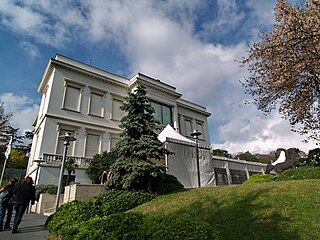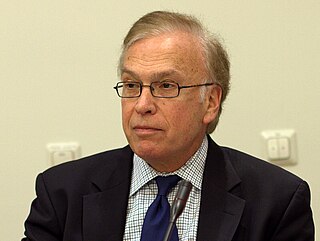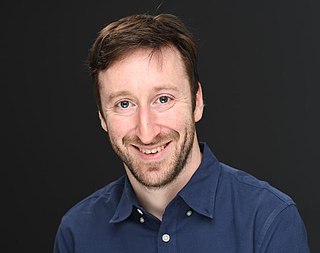Related Research Articles
The term nonprofits research is used to describe the academic enterprise devoted to teaching and research on nonprofit organizations and non-governmental organizations (NGOs), voluntary associations, voluntarism and voluntary action, philanthropy, civil society, and related activities. It is a loosely bounded, multidisciplinary, practice-oriented community.

The Sabancı University Sakıp Sabancı Museum is a private fine arts museum in Istanbul, Turkey, dedicated to calligraphic art, religious and state documents, as well as paintings of the Ottoman era. The museum was founded by Sakıp Sabancı, and was opened in June 2002. Aside from permanent exhibitions, the museum also hosts national and foreign temporary exhibitions and, hosts cultural events on the weekends.
M. Şükrü Hanioğlu is a Turkish professor of late Ottoman history in the Department of Near Eastern Studies at Princeton University. Between 2005 and 2014, he was the department chair. Currently, he is an Associated Faculty member at Princeton's History and the Practice of Diplomacy Program.

Lester M. Salamon was a professor at Johns Hopkins University. He was also the director of the Center for Civil Society Studies at The Johns Hopkins Institute for Health and Social Policy Studies. Salamon has written or edited over 20 books in addition to hundreds of articles, monographs and chapters that have appeared in Foreign Affairs, The New York Times, Voluntas, and numerous other publications. He was a pioneer in the empirical study of the nonprofit sector in the United States, and is considered by many experts in his field to have been a leading specialist on alternative tools of government action and on the nonprofit sector in the U.S. and around the world.
GiveWell is an American non-profit charity assessment and effective altruism-focused organization. GiveWell focuses primarily on the cost-effectiveness of the organizations that it evaluates, rather than traditional metrics such as the percentage of the organization's budget that is spent on overhead.
Leslie P. Peirce is an American professor in history. Her research interests include early modern history of the Ottoman Empire, gender, law, and society. She received her B.A. in History from Harvard College, her M.A. in Middle Eastern Studies from Harvard University, and her Ph.D. (1988) in Near Eastern Studies from Princeton University. In 1988–1998 she was with the Cornell University. In 1998–2006 she was professor in the Departments of History and Near Eastern Studies the University of California, Berkeley. Since 2006 she is with Department of History and the Department of Middle Eastern and Islamic Studies of the New York University, where she is the Silver Professor of History.

Imaret, sometimes also known as a darüzziyafe, is one of a few names used to identify the public soup kitchens built throughout the Ottoman Empire from the 14th to the 19th centuries. These public kitchens were often part of a larger complex known as a külliye, which could include hospices, mosques, caravanserais and colleges. The imarets gave out food that was free of charge to specific types of people and unfortunate individuals. Imarets were not invented by the Ottomans but developed under them as highly structured groups of buildings.
This is a male family tree for all the Ottoman Sultans and their mothers.
Lucas C.P.M. Meijs a Dutch organizational theorist and Professor Volunteering, Civil Society and Businesses at the department Business-Society Management of the Rotterdam School of Management, Erasmus University Rotterdam and Professor Strategic Philanthropy at the Erasmus Centre for Strategic Philanthropy.

Şehzade Korkut was an Ottoman prince who was for a short time the regent for the Ottoman throne. He was the son of the Ottoman Sultan Bayezid II.

Holden Karnofsky is an American nonprofit executive. He is a co-founder and Director of AI Strategy of the research and grantmaking organization Open Philanthropy. Karnofsky co-founded the charity evaluator GiveWell with Elie Hassenfeld in 2007 and is vice chair of its board of directors.
Marc David Baer is an historian and professor of International History at the London School of Economics and Political Science.

Jacob M. Landau was Professor Emeritus in the Department of Political Science at the Hebrew University of Jerusalem.
Sylvia K. Hassenfeld was an American communal leader, philanthropist, human rights advocate, and one of the first women to head a major international Jewish aid organization.
The Association for Research on Nonprofit Organizations and Voluntary Action (ARNOVA) was founded and incorporated in 1971 by David Horton Smith, with the help of Burt R. Baldwin, Richard D. Reddy, and Eugene D. White Jr. as the Association for Voluntary Action Scholars (AVAS).
Charity assessment is the process of analysis of the goodness of a non-profit organization in financial terms. Historically, charity evaluators have focused on the question of how much of contributed funds are used for the purpose(s) claimed by the charity, while more recently some evaluators have placed an emphasis on the cost effectiveness of charities.
Yeşim Arat (born September 5, 1955), is a Turkish political scientist and author specialized in gender politics, Turkish politics, women in Turkish politics, and women's movements in Turkey. She is a professor in the department of political science and international relations at Boğaziçi University.
Maurus Reinkowski is a historian of the Ottoman Empire and Professor of Islamic and Middle Eastern Studies at the University of Basel.

The art of Turkish calligraphy dates back to the seventh century. The Ottoman Turks migrated from Central Asia to establish an empire in Anatolia by 1299, and conquered Constantinople in 1453. The Ottoman Empire became a major European power. After the fall of the Mamluk Sultanate (1517), the Ottomans began to exert great influence over Islamic art and placed great emphasis on calligraphy. They collaborated with Egyptian and Persian calligraphers, adopting the naskh and thuluth scripts.
References
- ↑ "Amy Singer appointed Hassenfeld Chair in Islamic and Middle Eastern Studies". The Brandeis Hoot. 2018-02-09. Retrieved 2019-06-12.
- ↑ "Amy Singer named to Hassenfeld Chair of Islamic Studies". BrandeisNOW. Retrieved 2019-03-22.
- ↑ "Questions & Answers / A Conversation With Amy Singer". Haaretz. 2009-05-07. Retrieved 2019-04-30.
- ↑ "Amy Singer named to Hassenfeld Chair of Islamic Studies". BrandeisNOW. Retrieved 2019-03-22.
- ↑ "2014-2015 Members, Visitors and Research Assistant | School of Historical Studies". www.hs.ias.edu. Retrieved 2019-06-12.
- ↑ "All Souls College Oxford". www.asc.ox.ac.uk. Retrieved 2019-03-22.
- ↑ Singer, Amy (2004-06-01). "Introduction". Mediterranean Historical Review. 19 (1): 1–5. doi:10.1080/0951896042000256616. ISSN 0951-8967.
- ↑ "View of Vol 3 No 1 (2019)". scholarworks.iu.edu. Retrieved 2019-06-12.
- ↑ "Our Board" . Retrieved 2019-03-22.
- ↑ Amy Singer (2016). "Introducing the Ottoman Gazetteer and OpenOttoman". Journal of the Ottoman and Turkish Studies Association. 3 (2): 407–412. doi:10.2979/jottturstuass.3.2.20. JSTOR 10.2979/jottturstuass.3.2.20.
- ↑ "Outstanding Book in Nonprofit and Voluntary Action Research - Association for Research on Nonprofit Organizations and Voluntary Action". www.arnova.org. Retrieved 2019-03-22.
- ↑ "The Sakıp Sabancı International Research Award 2016". award.sabanciuniv.edu. Retrieved 2019-03-22.